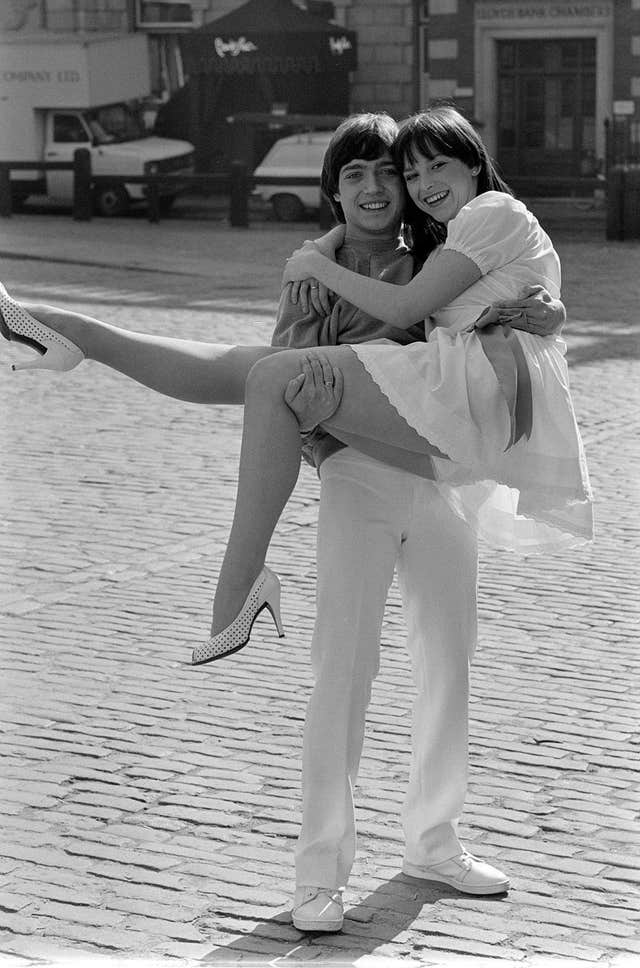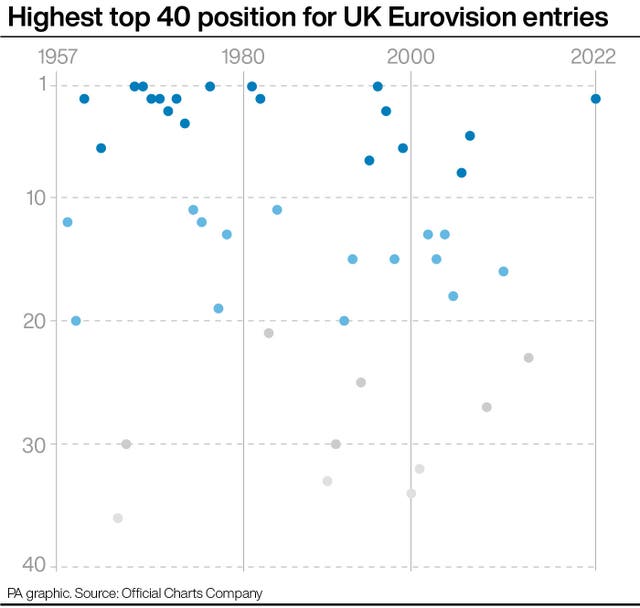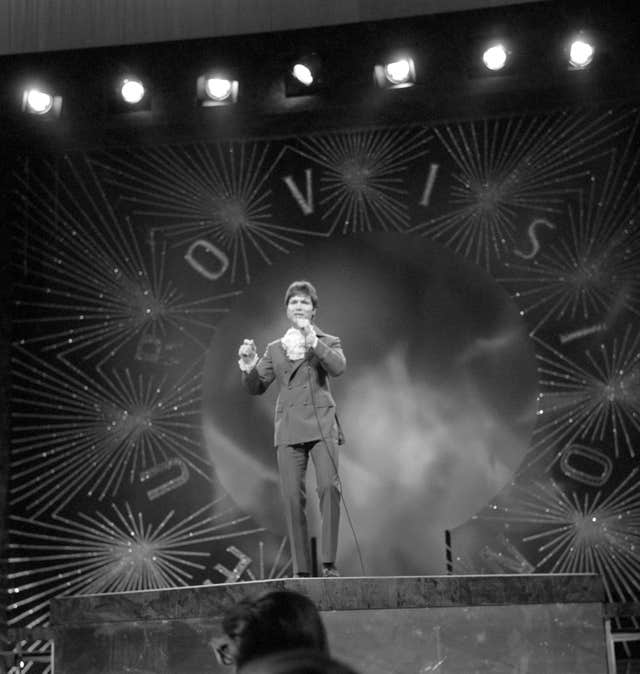How the UK’s Eurovision entries have fared in the charts
Just over two-thirds of the songs have managed to get into the top 40.

Sam Ryder is only the third artist in the past 40 years to reach either number one or two in the singles charts with a UK Eurovision song.
Gina G hit the top spot in 1996 with “Ooh Ahh… Just a Little Bit”, while Bardo made it to number two with “One Step Further” in 1982.
Ryder also brings to an end an inglorious period in recent music history, which saw none of the UK’s Eurovision entries make it into the top 40 from 2015 to 2021.
He becomes only the 11th UK Eurovision act in the history of the contest to reach the top two.

The first to achieve this feat was the duo The Allisons, who made number two in 1961 with “Are You Sure” – a song which, like Ryder’s Space Man, also came second in the contest itself.
An impressive run of Eurovision smash hits began in 1967 with Sandie Shaw’s “Puppet on a String” (number one in the charts), followed in 1968 by Cliff Richard with “Congratulations” (number one), Lulu in 1969 with “Boom Bang-a-Bang” (number two) and Mary Hopkin in 1970 with “Knock, Knock, Who’s There?” (number two).
The New Seekers reached number two in 1972 with their Eurovision entry “Beg, Steal or Borrow”, while The Brotherhood of Man went one better in 1976, topping the chart with “Save Your Kisses For Me” – an achievement that was matched by Bucks Fizz in 1981 with “Making Your Mind Up”.

Of the five UK acts to win Eurovision, only three – Sandie Shaw, Brotherhood of Man and Bucks Fizz – also made it to number one in the singles chart.
Lulu got as far as number two, while in 1997 Katrina & The Waves stalled at number three with “Love Shine a Light”.

Overall, out of the UK’s 65 Eurovision entries since 1957, just over two-thirds – 44 – have managed to get into the top 40.
Among those that fell short, it is perhaps best to gloss over the position achieved by the likes of Rikki Peebles in 1987 (who reached number 96), Electro Velvet in 2015 (number 114) and Josh Dubovie in 2010 (number 179).
All figures have been compiled by the PA news agency using data from the Official Charts Company.





